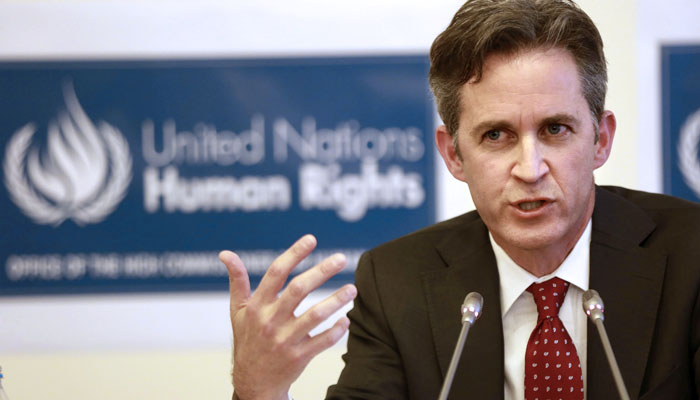United Nations Special Rapporteur on the Promotion and Protection of the Right to Freedom of Opinion and Expression David Kaye said in a recent report that one of the worst environments for freedom of expression in decades, if not unprecedented in its modern history, has been established in Turkey.
According to Kaye’s report, which was discussed during a special session of the UN Human Rights Council on Monday, Turkey has been intimidating and arresting journalists, artists, novelists and academics and shutting down newspapers and news agencies as well as restricting the circulation of movies, using the excuse of fighting terrorism, the boundaries of which are not very well defined. He also said there are serious doubts about the ability to exercise the right to a fair trial as a result of recent interventions into the judicial system by the government, the Evrensel daily reported on Tuesday.
Underlining that Turkey had faced serious security threats, including an attempted coup last summer, Kaye, however, expressed deep concern at measures taken to repress freedom of expression and recommended that Turkey immediately release journalists, writers, judges and academics who were detained pursuant to counterterrorism legislation and emergency decrees.
“The government should reverse its shutdown of media outlets, and refrain from the excessive blocking and filtering of content on the Internet,” Kaye said at the special session.
UN special rapporteur also noted that the current applications in the judiciary under the state of emergency have put Turkey far behind the 1982 Constitution, which was prepared under the regime of a military junta.
Reiterating that Turkey has been continuously violating freedom expression and its human rights obligations, Kaye said, in his unedited version of the report, “Since 15 July 2016 and the time of the writing of this report, reports indicate that at least 177 media outlets have been closed; 231 journalists have been arrested (over 150 journalists are in prison); nearly 10,000 journalists and media workers have been dismissed; and the press cards of at least 778 journalists have been canceled.”

